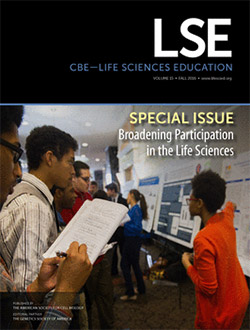UPDATE: The slides [PDF, 1.2MB] from the Bridges Applicants Webinar have been posted.
Are you preparing an institutional Bridges to the Baccalaureate or Bridges to the Doctorate grant application? If so, you may have questions about the funding opportunity announcements, data tables, and FORMS-E application package required for the upcoming September 25 receipt date.
We’re offering a webinar to discuss these topics:
Thursday, August 16, from 2:00-3:30 p.m. ET
You may send questions to us (Mercedes Rubio or Patrick H. Brown) before the webinar or post them live in the chat box during the event. If you’re away from your computer, you can access the webinar from a mobile device or listen to a voice-only option by dialing 1-800-857-5163 from anywhere in the United States or Canada and entering the participant passcode 2222558.
NIGMS Staff Participating in the August 16 Webinar:
Mercedes Rubio, Bridges to the Baccalaureate Program Director
Patrick H. Brown, Bridges to the Doctorate Program Director
Rebecca Johnson, Scientific Review Officer
Justin Rosenzweig, Grants Management Specialist
We look forward to talking to you about the Bridges programs. Slides will be posted on the Bridges to the Baccalaureate and Bridges to the Doctorate websites following the event.


